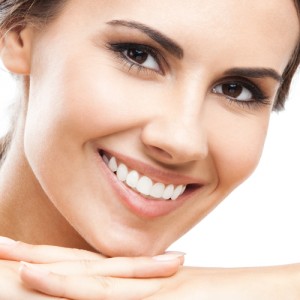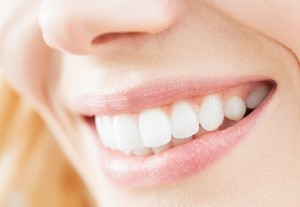Teeth whitening done at home
Teeth whitening has been increasing in popularity in recent years which has resulted in a variety of alternatives available on the market for both professional teeth whitening and teeth whitening at home. As an established cosmetic dentistry in Glasgow Berkeley Clinic offers safe, effective and pain-free teeth whitening in Glasgow and the surrounding area. Our experienced professional dentists can help you get a whiter and brighter smile in no time! But first, we need to answer some of the key questions related to teeth whitening.
What causes the discolouring of the teeth?
Our teeth are composed of an enamel surface layer, which is semi-transparent and whiter, and a darker, less transparent underlying layer called dentin. These tissues are calcified and hard, comparable to bones with a natural bone colour. As we age our teeth’s colour and shade alters as a result of changes in their mineral structure and as a result of the erosion caused by the food we consume and the acids it contains. This leads to the enamel becoming thinner and less porous.
There are two different types of discolouring – extrinsic staining (caused by surface stains which hide the natural colour of the tooth) and intrinsic staining (the process of the tooth discolouring itself). The extrinsic staining is most commonly caused by dental plaque, calculus, tobacco, certain foods and drinks and some medications. Intrinsic staining, on the other hand, is caused by dental caries or decay, dental trauma, enamel erosion and some medical conditions.
What is teeth whitening?
Teeth whitening, also known as teeth bleaching (when done using bleach), is the process of restoring the natural tooth colour shade or making the teeth whiter than the natural colour shade. Depending on the option chosen the procedures and methods will differ significantly.
The procedure of restoring the natural shade of the teeth involves removing surface stains (extrinsic stains) and calculus (tartar). Such stains are caused by food such as tea, red wine, coffee and smoking. These are removed through a procedure called scale and polish done by a dental professional, which is basically cleaning your teeth and restoring their natural colour.
When you want your teeth to be whiter than their natural shade, however, this would require bleaching. This procedure is very common and is done in a cosmetic dentistry by a dental professional. There is also a variety of products available for home use such as bleaching strips, bleaching gels and bleaching pens. These techniques generally contain strong bleaching chemicals such as carbamide peroxide and hydrogen peroxide, which have some minor side effects including hypersensitivity and irritation.
What teeth whitening methods exist?
Existing teeth whitening methods could be split in two main groups – teeth whitening done at home and teeth whitening done by a dental professional.
Teeth whitening done at home
This type of teeth whitening utilises a variety of over-the-counter products such as chewing gums, rinses, gels, toothpastes, whitening stripes and Tray-Based Tooth Whiteners.
Whitening toothpastes generally contain mild abrasives and polishing or chemical agents and can successfully remove some surface strains. They do not contain bleach and can help lighter the teeth colour by as much as one shade. In comparison, a dental professional can lighten your teeth with between 3 and 8 shades.
Whitening Gels contain peroxide and are applied with the help of a small brush directly to the teeth. Initial results can be observed in a few days, while the final result could be sustained for up to four months.
Whitening strips, on the other hand, are thin, almost invisible strips that are coated with whitening gel that contains peroxide. These are generally applied for 30 minutes, twice a day, for the duration of 14 days. Results are sustained for around four months.
Whitening Rinses are some of the latest teeth whitening products available. They freshen your breath, reduce plague, help fight gum disease and whiten your teeth. Recommended usage is twice a day for 60 seconds and results could be observed in around 12 weeks.
Tray-Based Tooth Whiteners could be purchased over-the-counter or from a dental professional. They are mouth guard-like trays filled with a whitening, peroxide-based gel that are worn for a couple of hours every day for up to four weeks.
Despite the popularity of such home teeth whitening products they are much less effective than teeth whitening done in a cosmetic dentistry.
Teeth whitening done by a dental professional
If you choose to have your teeth whitened in a cosmetic dentistry you will be treated with bleaching that contains hydrogen peroxide or carbamide peroxide and works on the enamel of the teeth to change its colour.
A benefit of this is the fact that you get expert advice and services and you previous health and dental history are taken into account. Following this whitening shade guides are used to measure the current and at the end of the procedure resulting teeth colour.
The process generally involves painting a light-cured protective layer on the gums which reduces the risk of chemical burns, which is followed by the application of the bleaching. Professional teeth whitening lasts for several months depending on your lifestyle.
Light-accelerated bleaching is one type of bleach used in cosmetic dentistry. It used light energy to speed up the bleaching process with the most common being plasma arc., halogen or LED light. The light works on the peroxide molecules, exciting them and improving their efficiency. This type of teeth whitening takes between 30 minutes and an hour and could be done in a single visit.
Internal bleaching is used to remove internal staining of the tooth’s dentin. It is generally done on teeth that have undergone root canal treatment. Unlike the external bleaching internal bleaching brightens the tooth from the inside. It is done by drilling a whole into the pulp chamber, then cleaning and sealing the chamber and the root canal. After that the tooth is filled with whitening gel that works directly on the dentin layer. This is left for a few days and replaced if needed.
 A large benefit of using a cosmetic dentistry for whitening your teeth is the professional advice you get. A dentist can recommend the most suitable treatment for you and could also identify potential issues. As teeth whitening is not recommended for some people as a result of age, health and previous dental history it is important to check whether the procedure is suitable for your needs.
A large benefit of using a cosmetic dentistry for whitening your teeth is the professional advice you get. A dentist can recommend the most suitable treatment for you and could also identify potential issues. As teeth whitening is not recommended for some people as a result of age, health and previous dental history it is important to check whether the procedure is suitable for your needs.
Looking for teeth whitening in Glasgow?
If you would like to completely transform your smile and get whiter and brighter teeth then Berkeley Clinic Glasgow is the place to go. Our tooth whitening procedure can help lighten stained or discoloured teeth, while providing a safe and professional environment for all patients.
As one of the best cosmetic dentists in Glasgow, Berkeley Clinic offers quality teeth whitening and an extensive range of dental services. Contact us today to book your teeth whitening consultation with Berkeley Clinic Glasgow.
Tags: best at home teeth whitening, best teeth whitening, Teeth Whitening, teeth whitening at home, Teeth Whitening Kit, teeth whitening products, teeth whitening strips





